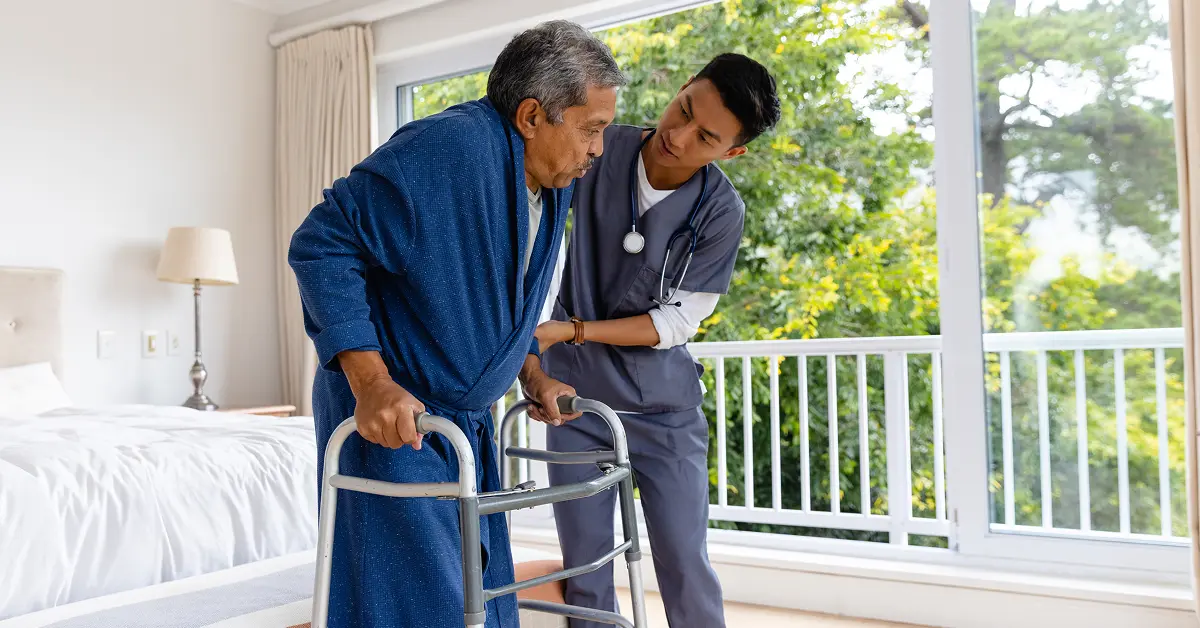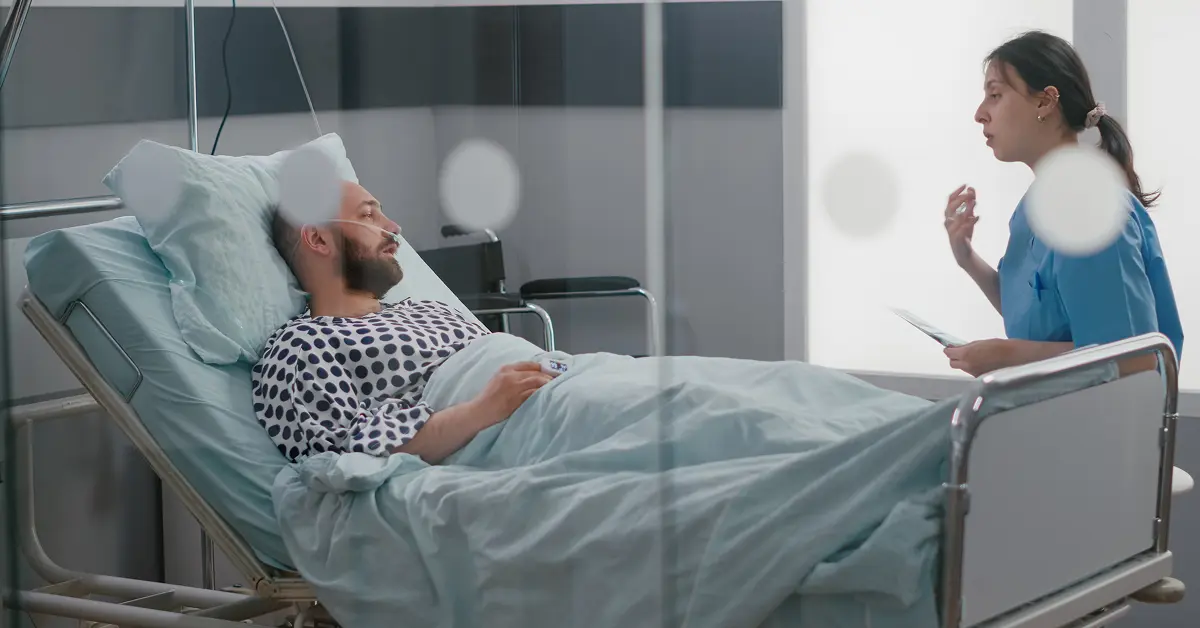Hospital Discharge is a significant milestone for patients and their families. While leaving the hospital signals a step toward recovery, it often comes with challenges that require careful planning, continuous monitoring, and professional assistance. The transition from a hospital environment to home care can be overwhelming, especially for patients recovering from surgery, chronic illness, or extended hospital stays. This is where trained caregivers play a vital role in ensuring a safe and smooth recovery process.
Understanding the Challenges After Hospital Discharge
The period immediately following hospital discharge is crucial. Patients are often physically weakened, emotionally vulnerable, and at higher risk of complications if care is not properly managed. Common challenges include:
- Managing Medication: Post-hospitalization often involves multiple medications with strict schedules. Mistakes can lead to serious complications or readmission.
- Mobility and Safety: Patients may face difficulties moving around, increasing the risk of falls or injuries at home.
- Dietary Needs: Proper nutrition is essential for healing, and some patients require special diets after procedures.
- Monitoring Health: Vital signs, wound care, and symptom tracking are critical to ensure recovery is on track.
- Emotional Support: Anxiety, depression, or stress can arise during recovery, requiring emotional and psychological support.
Professional caregivers are trained to handle these challenges effectively, bridging the gap between hospital care and home recovery.
Roles of Caregivers After Hospital Discharge
Medication Management
Caregivers ensure that patients take the correct medication at the right times, prevent missed doses, and manage refills. They can also educate patients and family members about potential side effects and proper medication storage. For complex medication regimens, caregivers often coordinate with doctors and pharmacists to avoid errors.
Personal Care Assistance
Patients recovering from illness or surgery may need help with bathing, dressing, grooming, and toileting. Caregivers provide compassionate personal care while maintaining dignity and privacy, helping patients regain independence gradually.
Mobility Support
Caregivers assist with walking, transfers, and exercises recommended by physical therapists. They ensure safety by preventing falls, using mobility aids properly, and monitoring patients’ endurance levels during activities.
Wound Care and Health Monitoring
Post-surgery patients often require regular wound dressing and monitoring for signs of infection. Caregivers are trained to observe changes in wounds, vital signs, and general health conditions. Timely reporting of issues to healthcare professionals can prevent complications and hospital readmission.
Meal Preparation and Nutrition
Proper nutrition supports faster recovery and improves overall health. Caregivers prepare meals according to dietary guidelines prescribed by doctors, ensuring patients receive the right nutrients and hydration.
Household Management
Recovery can be exhausting, and managing daily household tasks may become impossible for patients and family members. Caregivers assist with light housekeeping, laundry, grocery shopping, and other chores, creating a stress-free environment conducive to healing.
Emotional and Psychological Support
Adjusting to life after hospitalization can be mentally challenging. Caregivers offer companionship, encouragement, and reassurance, helping patients cope with anxiety, depression, or frustration during recovery.
Transportation and Appointments
Caregivers coordinate transportation for follow-up doctor visits, diagnostic tests, or therapy sessions. Reliable transport reduces missed appointments and ensures patients receive timely medical care.
Benefits of Hiring Professional Caregivers After Hospital Discharge
- Reduced Risk of Readmission: Proper care at home prevents complications and improves recovery outcomes, reducing the chances of returning to the hospital.
- Peace of Mind for Families: Families can feel secure knowing their loved ones are in capable hands, receiving consistent and professional care.
- Customized Care Plans: Caregivers tailor support to individual needs, including specific medical, dietary, and mobility requirements.
- Faster Recovery: Continuous support helps patients regain strength, independence, and confidence more quickly.
- Holistic Support: Beyond physical care, caregivers address emotional, social, and psychological well-being, which is essential for full recovery.
Tips for Choosing the Right Caregiver After Hospital Discharge
- Look for Trained Professionals: Ensure the caregiver has experience in post-hospital care, first aid, and basic medical knowledge.
- Check References and Reviews: Verified references from families or healthcare providers can indicate reliability and competence.
- Assess Compatibility: The caregiver should have good communication skills and a caring, patient demeanor that suits the patient’s personality.
- Understand Services Offered: Confirm that the caregiver can manage medication, personal care, mobility, wound care, and other specific needs.
- Flexibility and Availability: Choose a caregiver who can adapt to changing schedules and patient needs, including short-term and long-term arrangements.
Preparing Your Home for a Smooth Transition
Even with a caregiver, certain adjustments at home can significantly improve patient safety and comfort:
- Remove tripping hazards like loose rugs or clutter.
- Install grab bars in bathrooms and handrails on stairs.
- Keep frequently used items within easy reach.
- Ensure adequate lighting in all areas, especially hallways and bathrooms.
- Arrange a comfortable recovery space with necessary medical equipment and personal items.
Caregivers often guide families in setting up a safe and functional home environment for recovery.
Conclusion
Hospital discharge marks the beginning of a critical recovery phase, and professional caregivers play an indispensable role in this journey. From managing medications and personal care to providing emotional support and household assistance, caregivers ensure that patients recover safely and comfortably at home. By investing in professional caregiving services, families can alleviate stress, prevent complications, and give their loved ones the best chance at a smooth and complete recovery.
Whether it’s for short-term post-surgery care or long-term support after chronic illness, skilled caregivers are essential partners in bridging the gap between hospital care and home recovery. Their expertise, compassion, and dedication make the transition from hospital to home not just manageable but also empowering for patients and families alike.
Contents
Our 24*7 services
Latest Posts
- What Is Respite Care and Why Is It Important
- Affordable home care for senior citizens in India
- Caring for Seniors with Dementia or Alzheimer's at Home
- Senior Caregiving A Guide for Every Family
- How to Write a Caregiver Resume That Gets You Hired
- How Care After Hospital Discharge Speeds Up Recovery at Home
- How to Get Home Health Care for Seniors Through Medicare
- What Does a Senior Citizen Caregiver Really Do at Home
- How to Care for Elderly Parents with Alzheimer’s or Dementia
- How to Get 24-Hour Care for Seniors at Home



